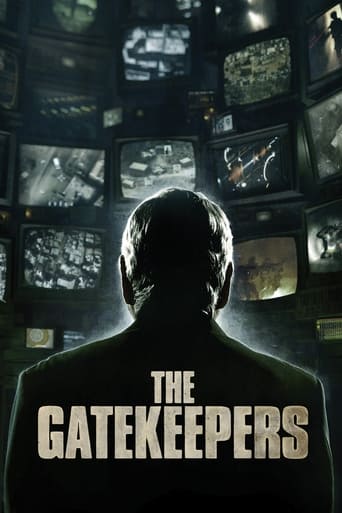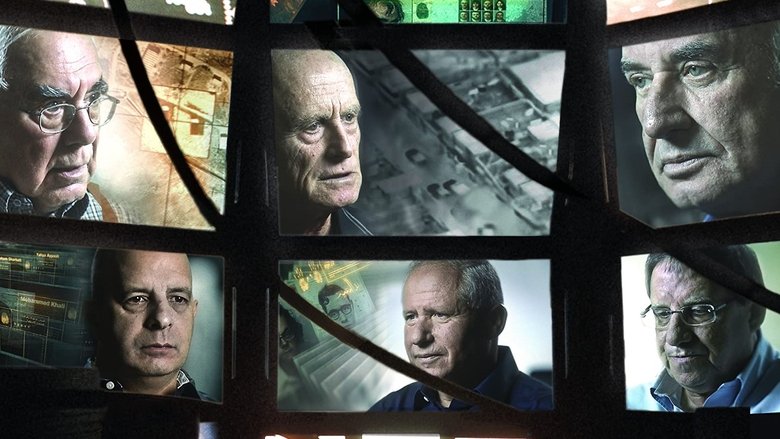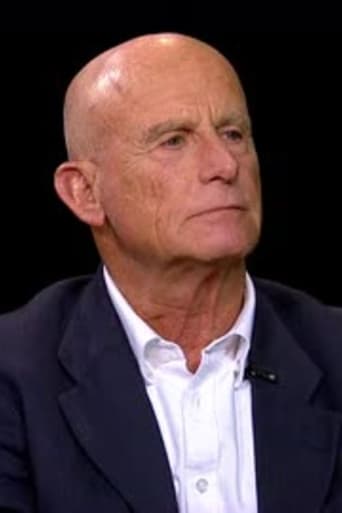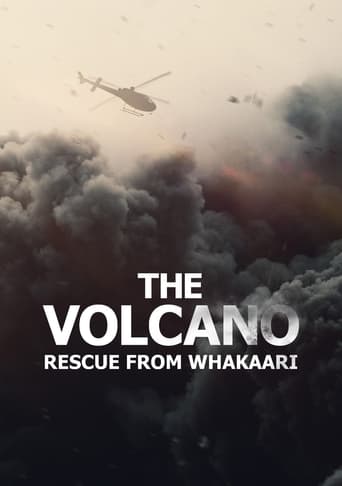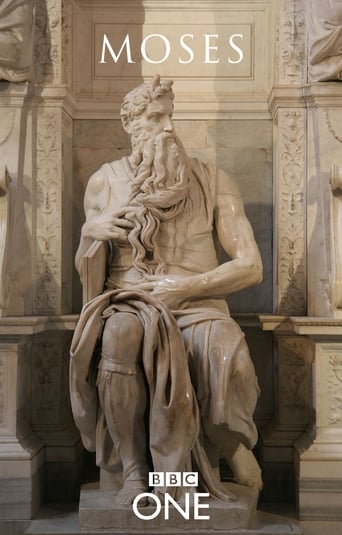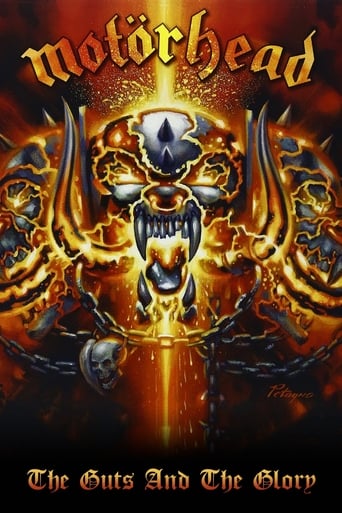The Gatekeepers (2013)
In an unprecedented and candid series of interviews, six former heads of the Shin Bet — Israel's intelligence and security agency — speak about their role in Israel's decades-long counterterrorism campaign, discussing their controversial methods and whether the ends ultimately justify the means. (TIFF)
Watch Trailer
Cast
Similar titles
Reviews
The joyful confection is coated in a sparkly gloss, bright enough to gleam from the darkest, most cynical corners.
The film may be flawed, but its message is not.
Blistering performances.
.Like the great film, it's made with a great deal of visible affection both in front of and behind the camera.
This amazing Israeli documentary is certainly unique in world cinema history. A group of spy chiefs have come together to complain about their own politicians and express their concerns about the future of the Middle East. All six surviving former heads of Israel's Shin Bet internal security agency (not to be confused with Mossad, the foreign intelligence agency which is not discussed) have clearly made an agreement amongst themselves to put their case to the world public and call attention to the very real dangers of the present situation, which they believe can only get worse. They complain about the spinelessness and lack of leadership of Israeli politicians. (They politely omit to mention the present ones, attacking only the retired or dead ones.) However, all of them strongly supported and admired Prime Minister Rabin, saying that his assassination by a fanatical orthodox Jew destroyed the chance for peace between Israel and Palestine. They all clearly hate and despise the ultra-orthodox Jews whom they call 'the settler movement' and complain that their own politicians have refused to restrain the excesses of those Jewish fanatics. They say that the ultra-orthodox Jews want to bring on Armageddon because they have a mystical conviction that then the Messiah will come. It is obvious that they believe that the ultra-orthodox Jews are totally insane. The Shin Bet aborted a very advanced plot by the ultra-orthodox Jewish fanatics to blow up the mosque on top of the ruins of Solomon's Temple in Jerusalem. But when the leaders of the plot went to prison they were released very quickly and the politicians were afraid to offend them. The former Shin Bet leaders are all very gloomy and believe that there is now no hope for peace. This film seems to be their last and most desperate attempt to change the situation by going public with their worries. They speak very frankly about the security situation and give many specific examples of operations, with a lot of revealing film footage. An enormous number of secrets are revealed in great detail. The film was directed by the Israeli director and cinematographer Dror Moreh and was nominated for an Oscar. Never has such a film been made before, and I wonder if any will ever be made again. Everyone interested in world affairs should watch it. It also offers enlightenment as to how despairing the heads of security agencies, who view themselves as 100% professionals, are about the politicians to whom they are required to answer, and whom they mostly regard as idiots or fools. When Colonel L. Fletcher Prouty, an early CIA whistle-blower, published his controversial book THE SECRET TEAM in 1974, revealing that the American intelligence agencies routinely gave false briefings to American presidents, feeding them with misinformation and manipulating their decisions, we had an early taste of American spy chiefs' contempt for their own politicians. Here we see no less than six successive security chiefs speaking in unison in the same manner. But whereas the American examples tended to be aimed at prolonging wars (such as in Vietnam), the Israeli spy chiefs on the other hand seemed to be more interested in ending wars and making peace. They say many flattering things about the ordinary Palestinian people and apparently believe that the Hamas terrorists are harming the Palestinians more than the Israelis. The film presents a picture of Israeli spy chiefs which is just about as far from what one would have expected as can possibly be imagined. All of these men clearly regard themselves as liberals. If you want to be surprised, try watching this.
As outlined in other reviews, the movie is a must-watch for anyone who cares about Israel. These people are not doves, nor any kind of ideologically motivated pacifists/lefties, they all come from different backgrounds and yet they all have the same message : Israel must separate from the Palestinians or it's the end of Zionism.However, one important fact I must stress out is that the movie assumes knowledge about the conflict, without it - I imagine - the movie, that doesn't follow a strictly chronological sequence of events will either not make much sense or paint a slightly distorted image.One important inaccuracy (in my opinion) is the statement by one of the heads about how Rabin's "killed hope". That is not true, after the assassination, the Israelis reacted as you'd expect any people to react: with massive support for the legacy of the dead prime minister and endorsement of his successor. Before the 1996 election, Peres seemed poised to win by a significant margin. However, four Hamas terror attacks between February and March gave the win to Netanyahu.That being said, I do agree that his assassination did incalculable damage to the Israeli peace camp. Most importantly, because of his past as a war hero, he was the only one who could successfully sell the "Make peace as if there was no terror" policy.
In 2010, Shireen was stopped at a checkpoint in Jerusalem and asked for her ID."I gave the Israeli soldier my ID. He said that I couldn't pass and have to take a detour. I asked for directions. He screamed suddenly and told me I was under arrest for three hours. They put me inside a small room near the checkpoint with large windows. Later a jeep came and they transferred me to a Jabal al-Mukaber police station. Someone identified himself as an officer. He didn't mention his name. No charges were mentioned. Only that I'll be transferred to Talpiot police station.In Talpiot they interrogated me and accused me of owning a knife, which I didn't. I was under arrest for 24 hours and would be transferred to Maskobiyeh Detention Center. They handcuffed and blindfolded me. Later on, I realised I was in an interrogation room. They removed the blindfold. An interrogator said: 'Welcome, we've been expecting you for a long time.' They confined me in a cell. Soldiers came later and told me I'm going to court which was comforting. I knew if I meet a judge I will be released. I did nothing wrong. They took me blindfolded through long corridors. I heard Palestinian detainees calling upon me to remain strong. I was confused. What do they mean? Was I not leaving?I was alone in the cell, which I believe was underground. I had to go down a very long staircase to reach it. It was very small to fit a person. It had a pit-toilet and a sleeping mat. The smell was horrible. The walls were grey and made out of pointed stones. I hurt myself several times trying to support my back or head. The orange lights were kept lit all day. The AC was mostly on with full power. I felt like I was in a fridge. My whole body turned blue from the excess chill. The iron door had a small slot they used to talk to me. They switched me between two cells. I knew that because the door location changed. Sometimes they'd get me to a new cell with the lights off. I couldn't even see my own hand there. So, when I approached the door or the pit-toilet, I end up hitting the wall. Only then did I know they switched the cell. They made my meetings with the lawyer difficult. They'd make him wait for hours falsely claiming I'm being interrogated. Other times they claimed I refused to meet him without informing me. They left me alone while the lawyer was waiting elsewhere. They'd intentionally sit very close to me. They almost stick their mouth to my ear and shout loud. One day the interrogator unchained me and approached. His face was almost glued to mine. I asked him to give me my space. But he told me: 'We're the ones who decide here. You have no personal space. Who do you think you are?'I pushed him away. Other interrogators rushed in and started shouting. They hit me, tied my hands and legs and blindfolded me, repeatedly dragging me on the floor and slamming me against the wall. They chained me with a leash and said: 'I dealt with the likes of you before. You're rubbish. You're worthless.'During interrogation I asked for a Quran, a book, a pen. Anything to feel alive. I said I'm on strike until I get my demands. When I finally got the chance to buy a pen, I was so happy. I felt like a kid on New Year. I started to write down everything I experienced. I wrote about finally buying a shampoo to use in my cell. I described to my mum the scarce smell of hygiene. Being a girl in the interrogation, they know honour and reputation is something we highly value. So, they use it against us. They threatened to rape me. A colonel once came to me in the later stages and called me nasty names. He gave details on sexual positions, and that he'd bring his dog to do those things to me. As if to say we are worthless, not human. That we're worthy of dogs.The detention with all its horrors had a positive side. It allowed me to experience things that detainees may hide. If I go back to being a lawyer or working with children, the cases won't be rumours I merely hear about. I lived through it."
I lived thru most of the events mentioned in Documentary. The Shabac is only One of the Military Services Involved in Policy and Decision Making. There were hints at the Crux of the Problem in Israel. The PR Election System Similar to Italy after WW2 and Other countries that had PR Proportional Representation mainly from WW1 to WW2. Also Lebanon suffered from Sectarian Politics. Lebanon had a Crisis in 1958 and 1975 when Consensus broke down. Or Holland after Right wing Leader was Shot. But a must see for anyone interested in The Israeli Palestinian Conflict. Quite Detailed Collection of Different Sources about Rabin assassination. Settling of West Bank, The "Wall" and Other Issues. Also I add the Modern Issue of Asymetric Warfare and Asymetric Politics. Uncle Sam.
